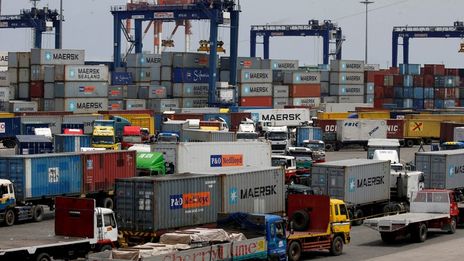By Ying Xian Wong
Malaysia's central bank kept its benchmark interest rate unchanged again as expected, as the economic outlook holds steady and inflation stays in check.
Bank Negara Malaysia on Thursday maintained its overnight policy rate at 3.00%, where it has been since May last year. The decision was expected by all seven economists polled by The Wall Street Journal.
"At the current OPR level, the monetary policy stance remains supportive of the economy and is consistent with the current assessment of inflation and growth prospects," the central bank said.
Economists had largely anticipated the decision, as economic conditions in the country continue to be stable and inflationary pressures manageable.
There's no compelling reason for Bank Negara to change its stance, BNY head of markets strategy and insights Bob Savage said in a note.
While weakness in the Malaysian ringgit remains a factor to watch, the central bank's unlikely to resort to rate changes to address that, analysts say.
The currency is down about 2.2% versus the dollar in the year to date but the Malaysian central bank's intervention efforts have helped it be one of the best-performing currencies in the region, said analysts at BMI, a unit of Fitch Solutions. Efforts include urging government-linked firms to convert foreign-exchange income into ringgit.
Bank Negara on Thursday said external factors are the main cause for ringgit volatility. It said it will continue initiatives with the government to cushion the ringgit, while also managing financial market risks.
The central bank retained a broadly upbeat view on the economic outlook, saying the latest indicators suggest continued strength in the second quarter, resilient domestic spending and better exports.
Moving forward, focus will be on the potential inflationary effects of government subsidy cuts as authorities wind back price controls for items like fuel, Standard Chartered economists Edward Lee and Jonathan Koh said in a note.
Bank Negara reiterated that it will keep an eye inflation, which could pick up in the second half of the year due to the removal of government subsidies for diesel, but will remain manageable thanks to mitigation measures. Future inflation risks will hinge in part on the spillover of further domestic policy changes, it said.
For 2024, headline and core inflation are expected to average 2.0%-3.5% and 2.0%-3.0%, respectively, the central bank said.
Bank Negara's tone at the meeting backs Capital Economics' view that an extended pause will continue.
Unlike in many other parts of Asia, rate cuts are unlikely in Malaysia this year thanks to a solid economic rebound, Capital Economics economists said in a note. Though inflation concerns are likely to re-emerge, "overall, we expect interest rates to be left unchanged for the rest of this year and the whole of 2025."
Write to Ying Xian Wong at yingxian.wong@wsj.com
(END) Dow Jones Newswires
07-11-24 0419ET


























